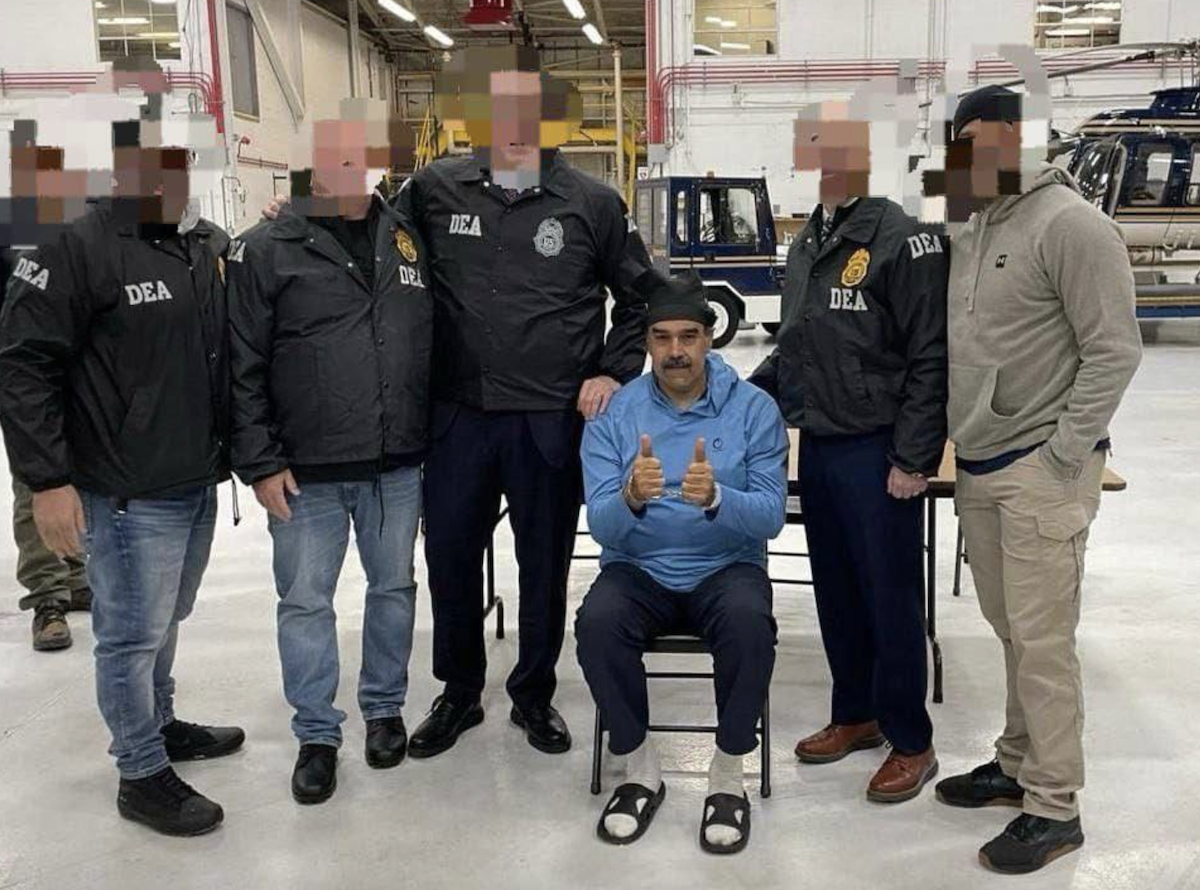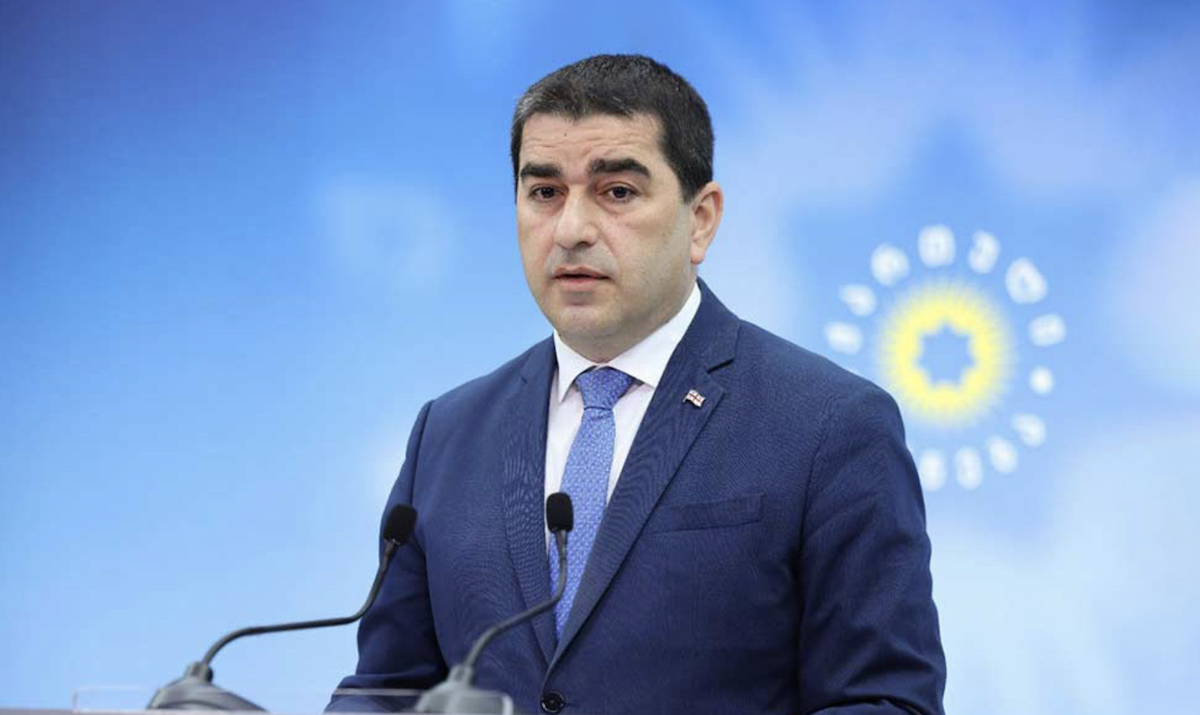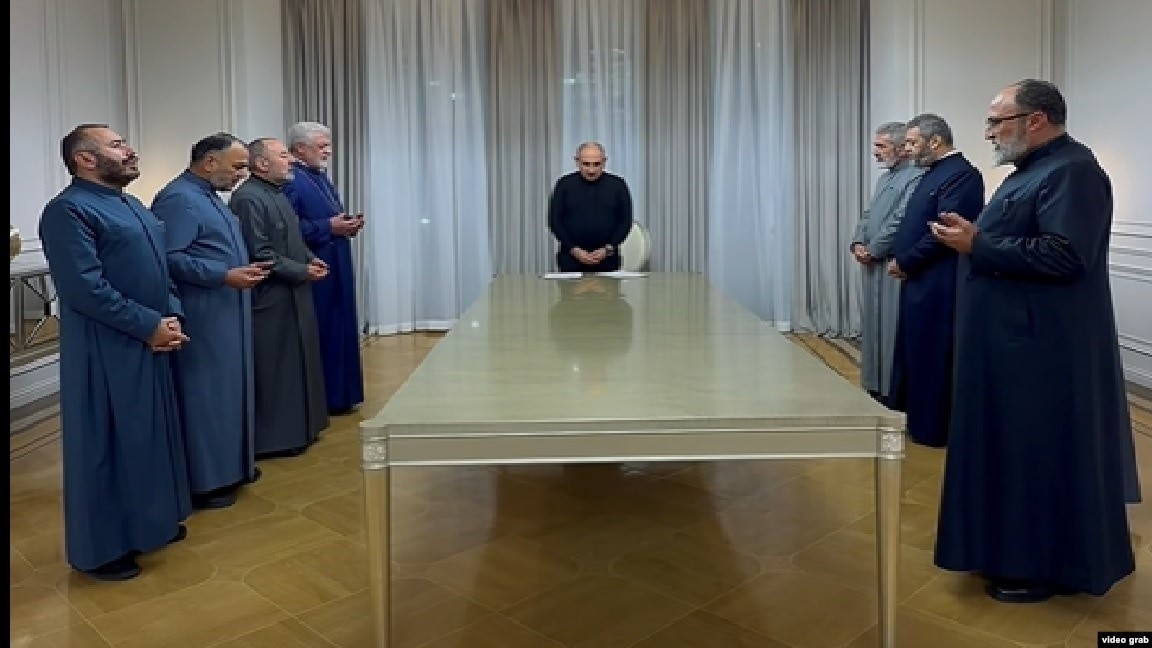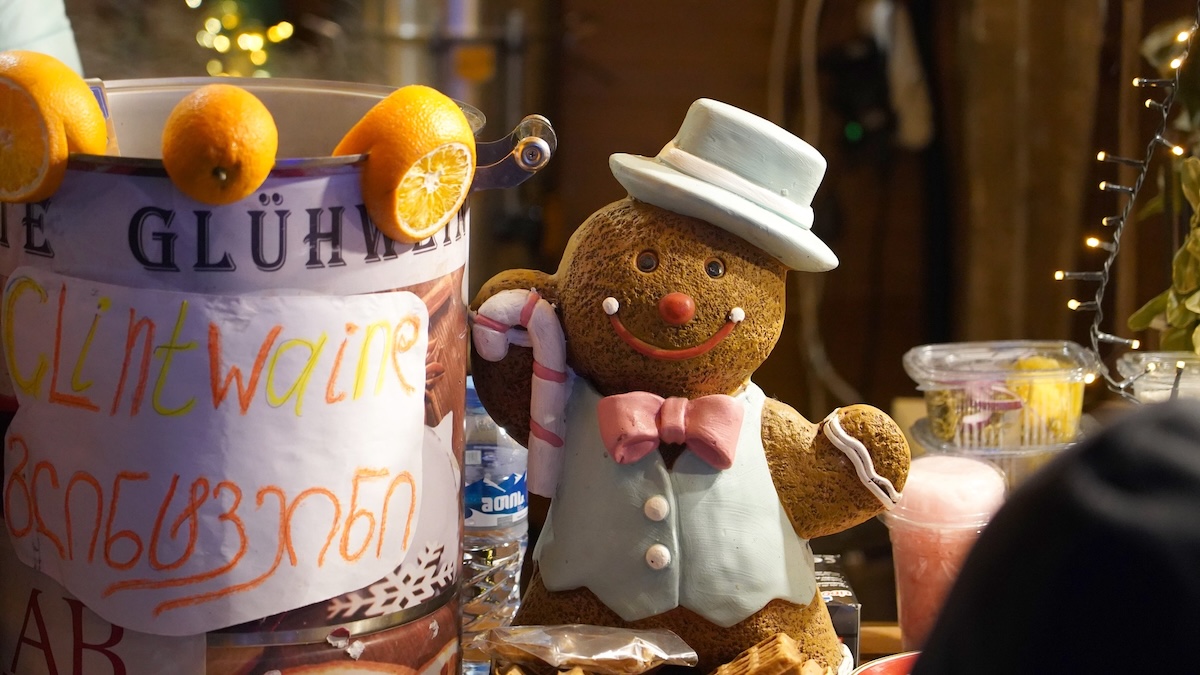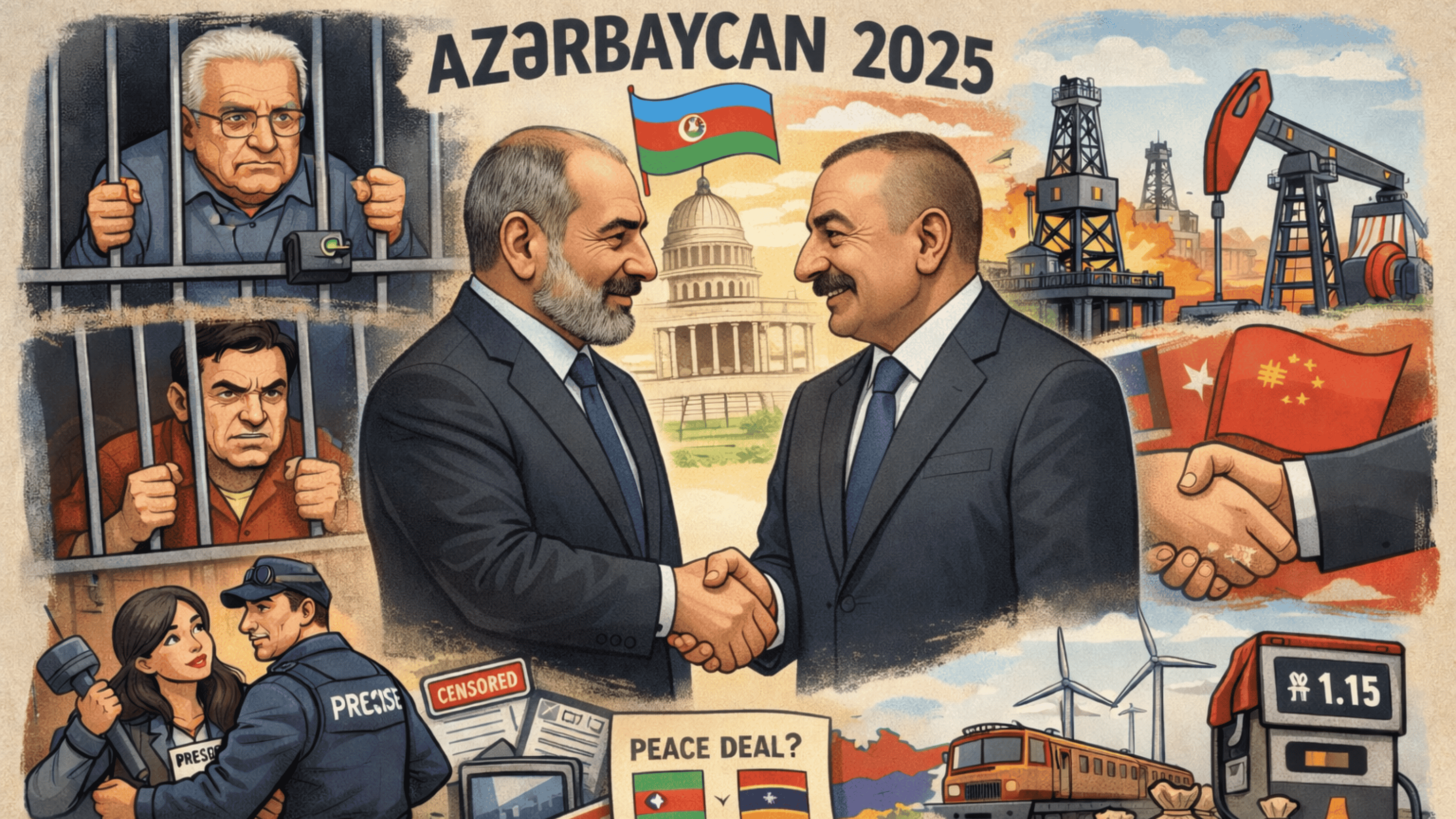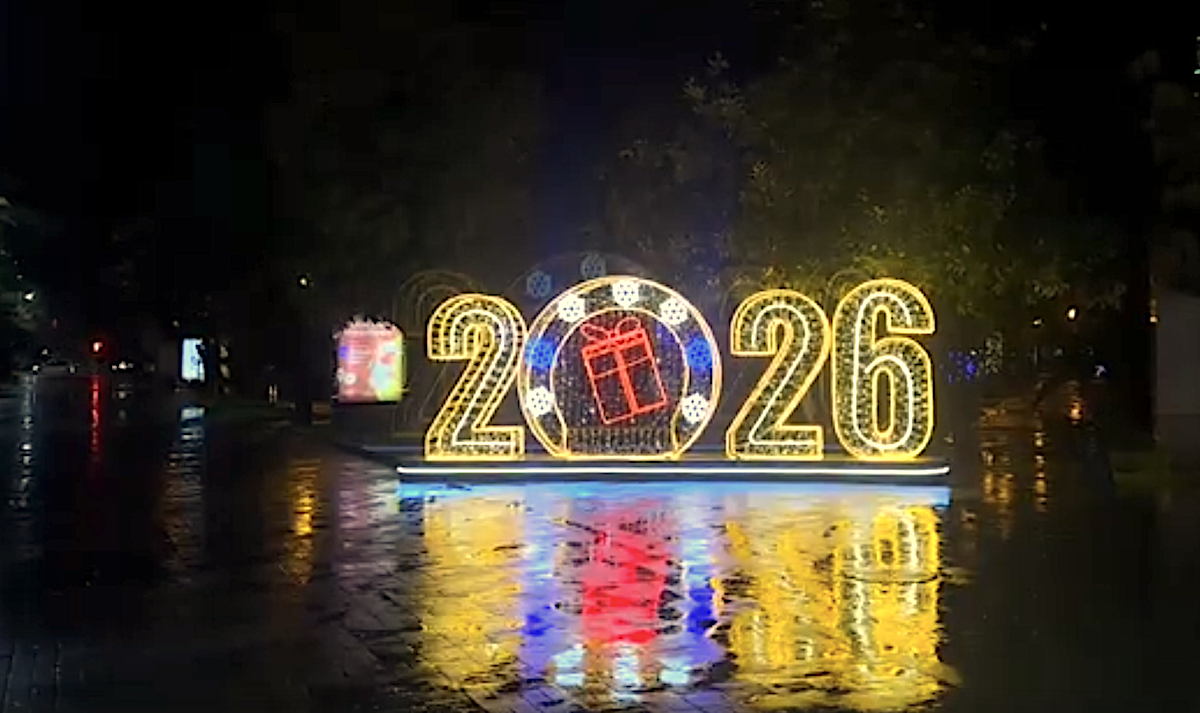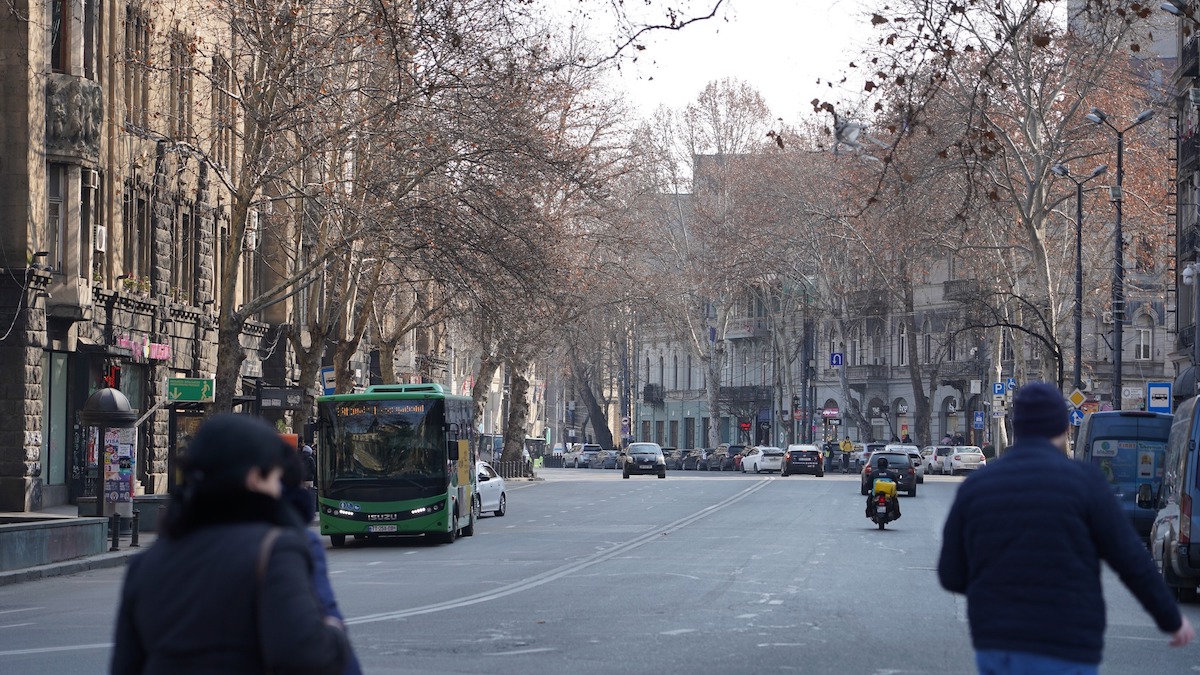Living surrounded by hate. LGBT individuals and their parents in Georgia
LGBT individuals in Georgia say they do not feel protected. Attacks and threats, in addition to discrimination and blackmail, are part of their everyday life.
Their parents are also in a difficult situation – the public often ‘blames’ them for the sexual orientation of their children.
“I’m ready for anything, as long as my child is ok”
“You should have watched him more carefully – instead of a man, he’s become a girl,”
“If you had known he’d turn out this way, you’d have had an abortion,“
“She’s the mother of a pederast.”
Keto Benidze, Emzo’s mother, hears such remarks every day.
Despite the constant attacks of others, Keto does not cease loving her son. She is friends with him and supports him.
Emzo told his parents that he was gay when he was 24 years old. His mother and father did not immediately come to terms with his sexuality, but in the end, parental love turned out to be stronger than the fear of “what people would say.”
• The church that supported transgender women during the COVID-19 crisis. VIDEO
• Armenia: HIV patients face discrimination – from doctors
• Homosexuality in Turkey: Minister of Religious Affairs v. lawyers
Emzo himself no longer lives in Georgia, more than a year ago he moved to Belgium.
The homophobic attacks now fall on his mother.
“I’m angry, gasping in anger, when my mother has to listen to all kinds of nasty things because of me,” says Emzo.
“They purposefully insult her. I know exactly how hard it is for her to return home from a long working day. She walks kilometers, and bears views of hatred baring down on her. How unbearable it is hard for her to listen to the abuse meant for me.”
Tamila Gacerelia, the mother of a transgender girl, has to live with malicious comments as well.
Tamila is often asked why her “son behaves as a woman”, why she is not more strict with her child, and why doesn’t throw them out into the street.
The mother tries not to leave a single question unanswered and explains to everyone that her child is not sick.
“I want her to be a full citizen. She is ready for any discomfort, all that’s important is that she be a good person”, says Tamila Gacerelia.
“With the birth of every queer child, a queer parent is born”
Nana Pantsulaia no longer remembers when her daughter Mariam said she was a lesbian.
She says she immediately accepted her daughter.
“I just don’t understand why you need to control and limit a person if you love them. Mariam has her own life, I respect everything that she does, how she does it and in general, how she lives.
She is a very interesting young woman, successful and independent. I never allowed myself to interfere in her life, even when she was little. And now – all the more so”, says Nana Pantsulaia.
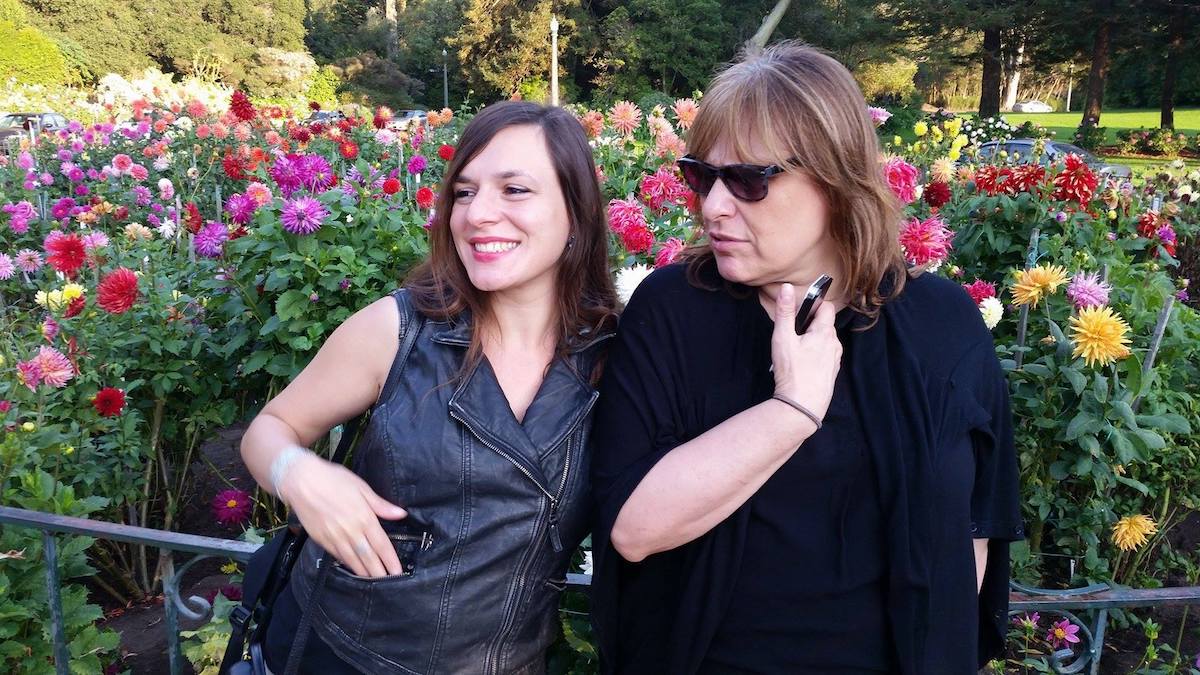
Nana not only accepts her daughter’s homosexuality, but also actively fights for LGBT rights in Georgia. Mariam recalls that on May 17, 2013, she stood next to her daughter when a crowd led by priests attacked people who had come out for a demonstration against homophobia.
“She is not only my mother, but one of my most beloved and dear friends. She always works on herself, she is constantly growing as a person, as an activist of the feminist movement and as an ally of ‘non-standard’ movements.
She is probably one of the first parents among activists of my generation who decided to openly support us, who came to the rally and who herself faced the problems that have become the daily reality of members of our community”, says Mariam.
Mariam has been living in the USA for several years now, but her mother still goes to all LGBT demonstrations.
“I really like this phrase, don’t remember where I got it from: ‘With the birth of every queer child, a queer parent is born’”, says Nana. “I advise all parents to think seriously about this.”
“Love is love”
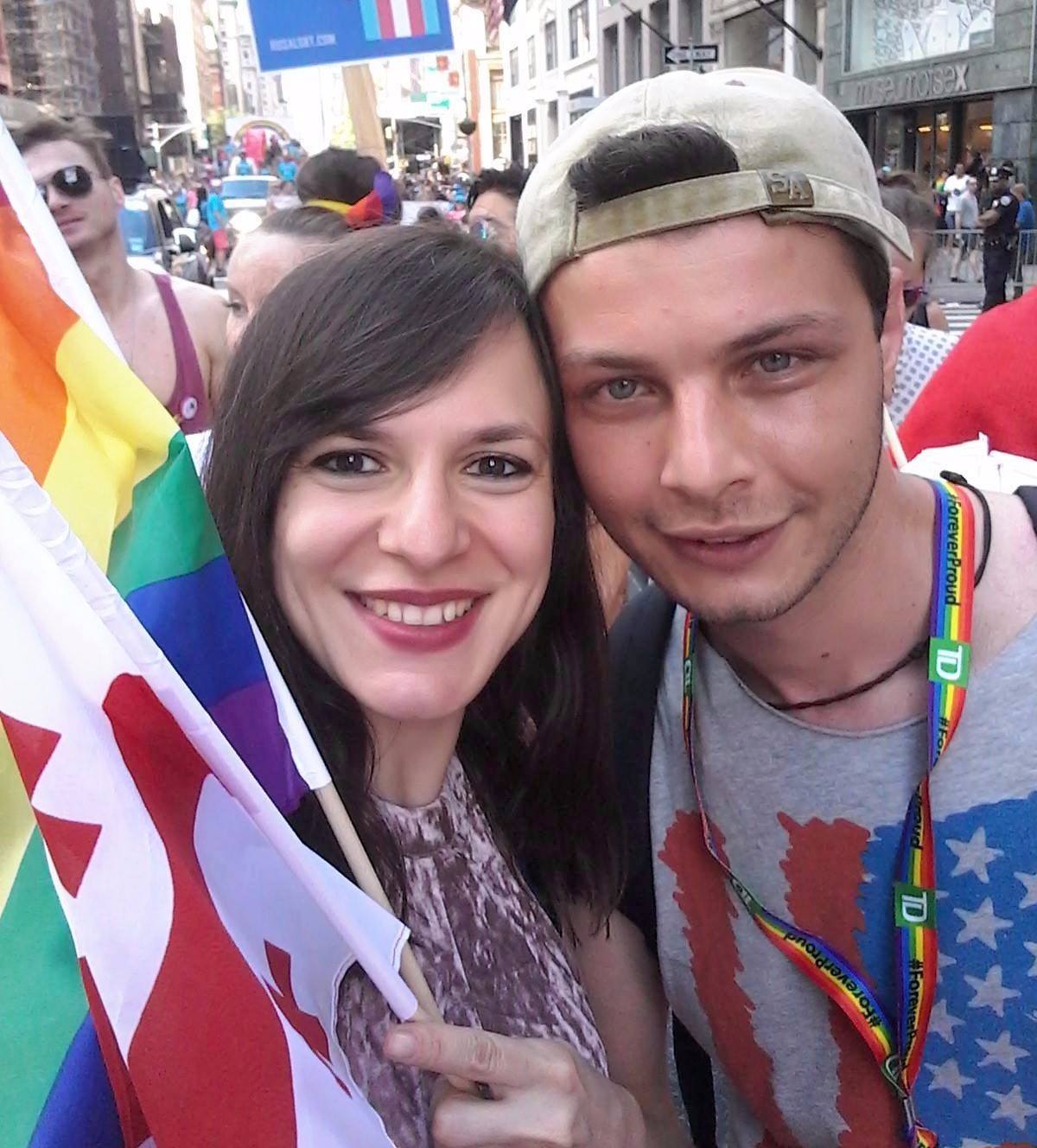
Mariam Gagoshashvili, the daughter of Nana, lives in cities with fairly low levels of homophobia — New York and San Francisco.
Mariam says she has heard homophobic remarks in the United States, but this cannot be compared with Georgia.
“Nobody has thrown stones at me on the street, nobody has torn my hair out in public transport, didn’t give me slaps in nightclubs, didn’t splash my face with drinks in bars, nobody has tried to rape me because of my sexual orientation.Nor has anyone refused me as a tenant or kicked me out of an office or apartment, and no one tried to kill me because I’ve participated in a peaceful demonstration.
And all this really happened to me in Georgia, I experienced all this the hard way, and more than once”, says Mariam.
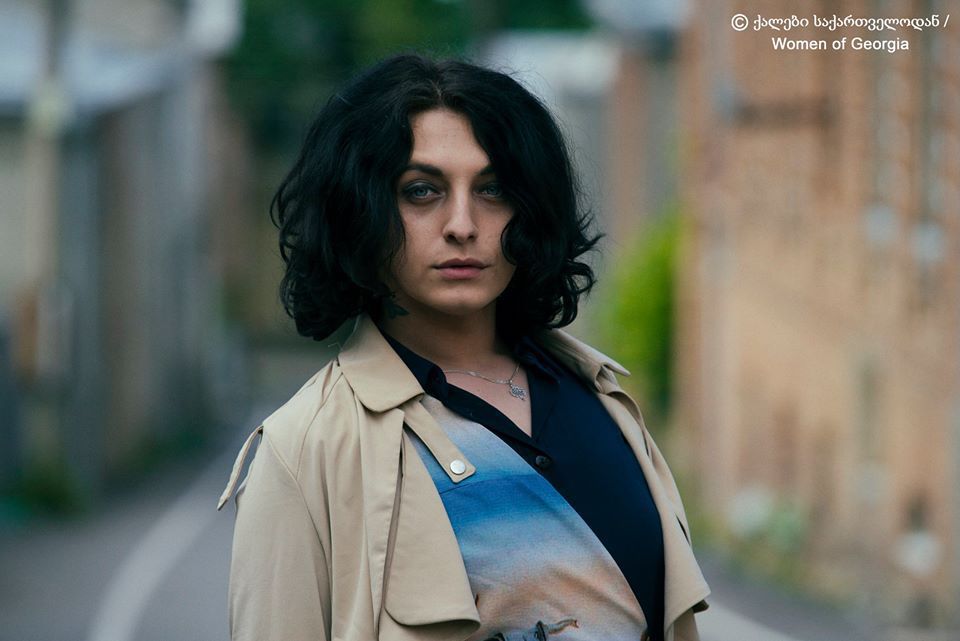
23-year-old Monika Tigishvili left Georgia for permanent residence in another country.
She is a transgender woman. She says she was never able to leave home without experiencing insults and ridicule.
“As a result, I came to the conclusion that in order to be protected, to be able to realize myself, to live in safety, I needed to leave Georgia,” she says.
Monika notes that in the present conditions in Georgia, it is difficult to hope even for the support of on’s parents who are also subjected to aggression because of who their children are.
Activist Niko Gorgiladze also left Georgia because of homophobia of those around him.
Niko was attacked on May 17, 2018, at the moment when he uttered the phrase “Love is love, always and everywhere.”
The police cordon fenced off an aggressive crowd of activists, but some managed to break through, and Niko was attacked. The minor who attacked him was detained by the police on the spot.
The activist did not insist on arrest and asked that he be punished with community service, and not by prison. A court handed over the attacker to parental custody, and Niko left Georgia.
“We have no time for LGBT parades in Georgia”
On May 17, 2013, the Georgian state could not ensure the right to meetings and self-expression — activists were taken away from Rustaveli Avenue by minibuses from an angry mob headed by priests. The following year, on the initiative of the patriarchy, May 17 was declared the Day of Family Purity, and every year clergy with a flock organize mass marches on that day.
It is very difficult and dangerous to hold LGBT actions on May 17 – the Day of the struggle against homophobia. Opponents of LGBT organized every year trying to prevent the holding of shares.
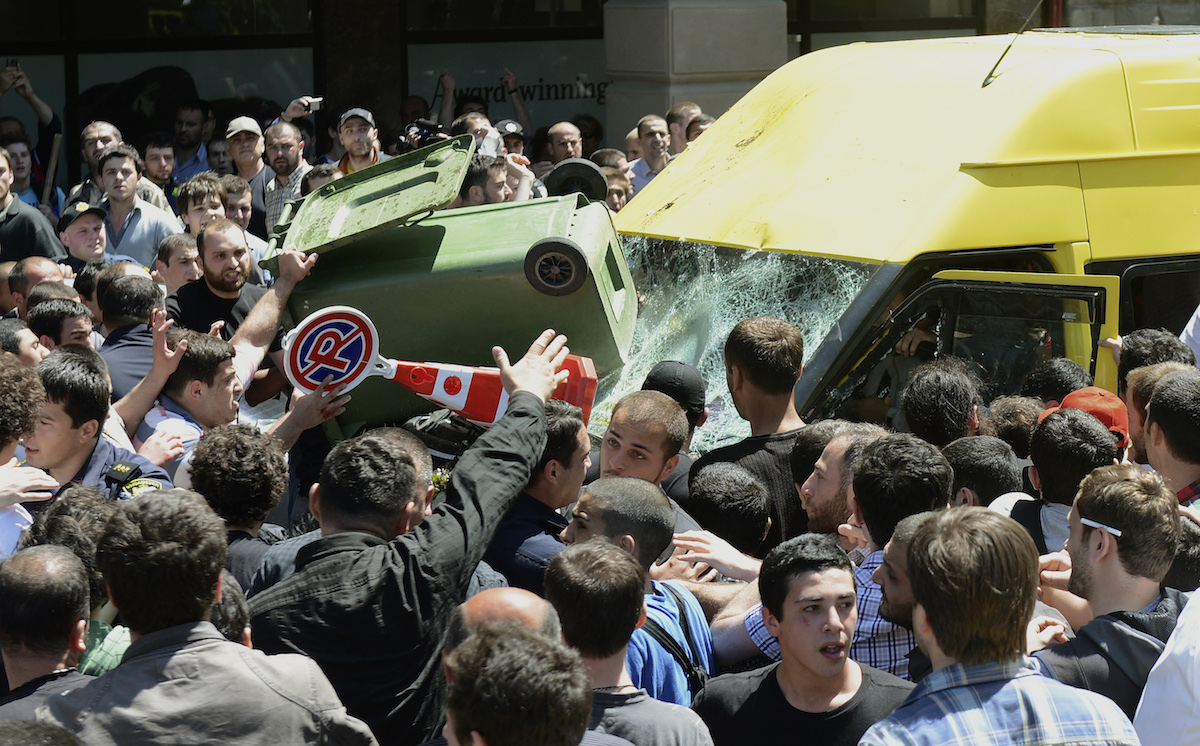
“We have no time for parades in Georgia. It’s not the time to arrange a semblance of a carnival. Our pride will be political. We would like to talk about the challenges and problems that LGBT people face in Georgia”, says Giorgi Tabagari, one of the organizers of Pride.
He stresses that in recent years the level of migration has noticeably increased, more and more often LGBTQ indiviudals are leaving Georgia, and this is alarming.
“People have no hope that the state will provide for their protection. They are afraid to go outside their homes”, says Giorgi.
Since 2014, a special law prohibits discrimination of Georgian citizens on any basis: age, health status, limited opportunities, sexual orientation, gender identity, profession, etc.
The law prohibits discrimination of any form, not only in public, but in the private sphere.
Parliament passed this law against the backdrop of a protest of the Georgian Orthodox Church. Clergymen often took part in the parliamentary discussions of this bill and even insisted on making some amendments to a number of articles.
According to the estimates of non-governmental organizations specializing in human rights issues, the final version of the law turned out to be ineffective and discrimination continues.












